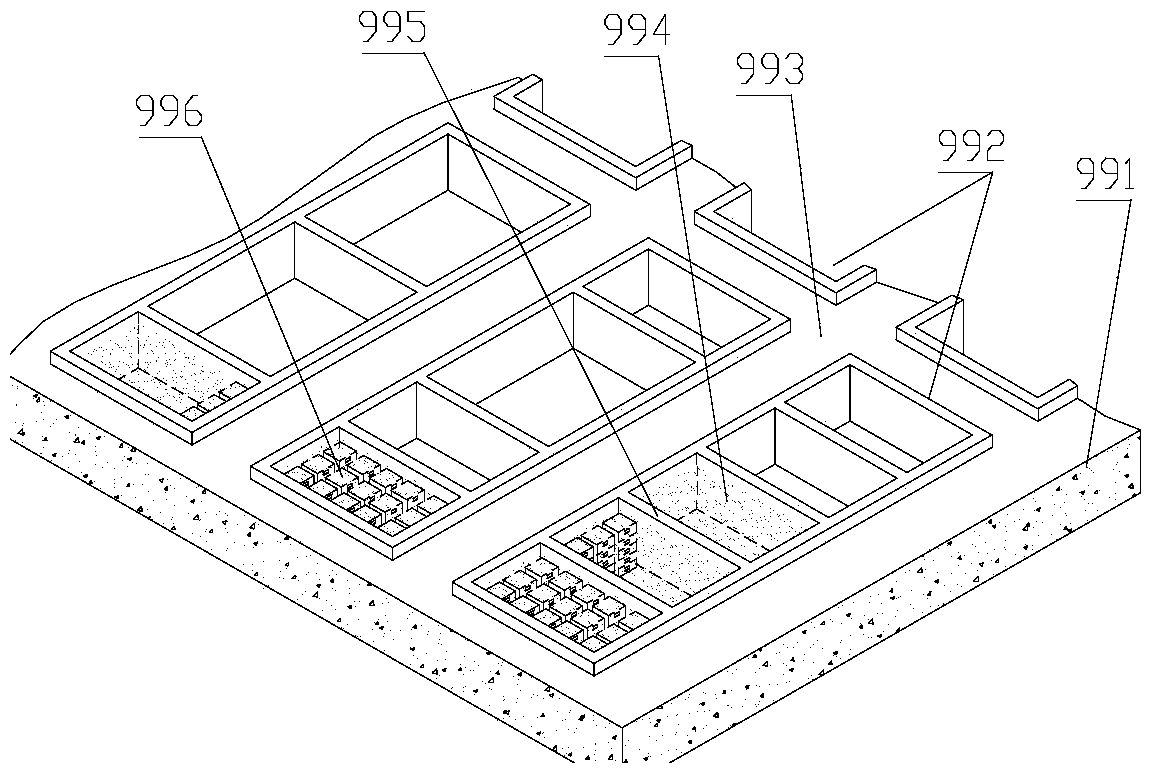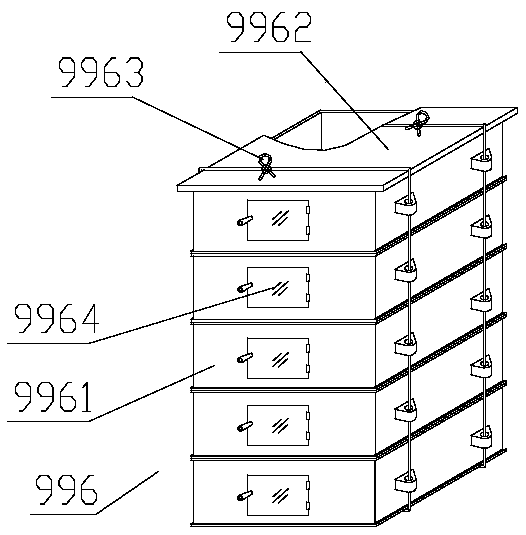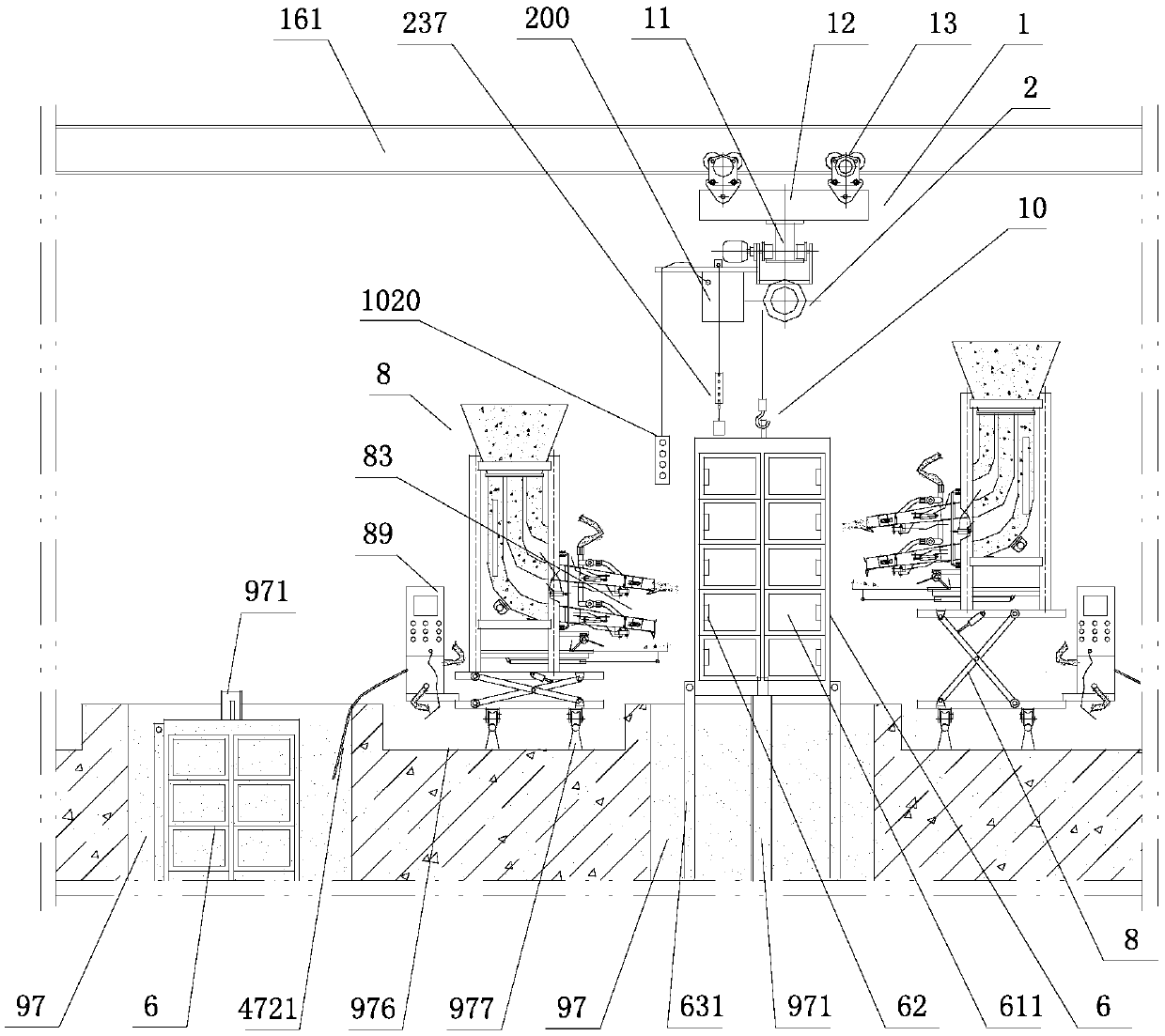Aquaculture feeding system with double-hook crane
A feeding system and crane technology, which is applied to cranes, walking bridge cranes, traveling mechanisms, etc., can solve the problems of error, death, and influence on the growth of abalone in the measurement of hand feel, and achieve high speed, high efficiency and simple structure. Effect
- Summary
- Abstract
- Description
- Claims
- Application Information
AI Technical Summary
Problems solved by technology
Method used
Image
Examples
Embodiment Construction
[0044] The technical solution of the present application will be further described in detail through the following embodiments in conjunction with the accompanying drawings. Apparently, the described embodiments are only part of the embodiments of the present application.
[0045] like image 3 , Figure 4 As shown, it is a front view and a side view of a water breeding feeding system with a double hook crane described in the first embodiment of the application. The feeding system includes a breeding pond 97, a breeding cabinet 6, and a feeding machine. 8. Crane 1, each of the culture ponds 97 is set up under the workshop floor, a plurality of culture ponds are arranged in parallel, a workshop walkway 976 is arranged between every two culture ponds, and a feeder track 977 can be provided on the workshop walkway; A pair of limit guide columns 971 are arranged in the culture pond, and the limit guide columns stand vertically on the culture pond, and one end is fixed on the bott...
PUM
 Login to View More
Login to View More Abstract
Description
Claims
Application Information
 Login to View More
Login to View More - Generate Ideas
- Intellectual Property
- Life Sciences
- Materials
- Tech Scout
- Unparalleled Data Quality
- Higher Quality Content
- 60% Fewer Hallucinations
Browse by: Latest US Patents, China's latest patents, Technical Efficacy Thesaurus, Application Domain, Technology Topic, Popular Technical Reports.
© 2025 PatSnap. All rights reserved.Legal|Privacy policy|Modern Slavery Act Transparency Statement|Sitemap|About US| Contact US: help@patsnap.com



